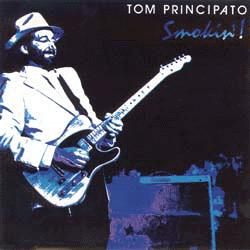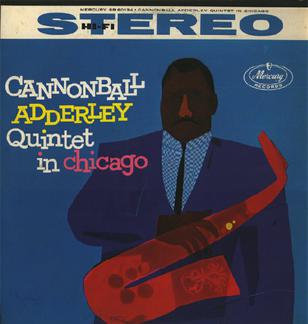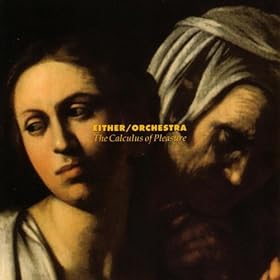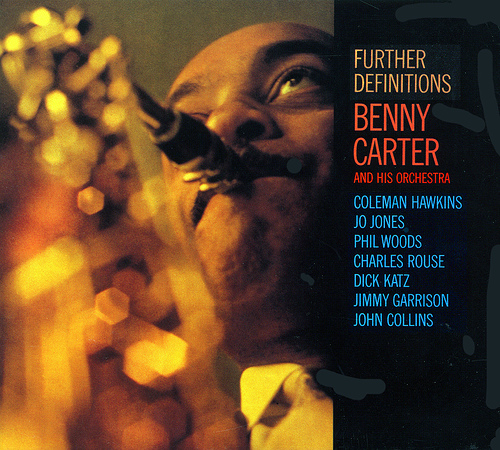Listening to Miles go electric 40 years ago, critics were in a different position. They took issue with his stylistic developments, because 1974 was much different than 1954. They were too close to see that the intervening years would witness Davis' massive influence on successive generations. Today we see what happened, so we evaluate their merits on another scale. It bears mentioning that these aren't records I can listen to every day. I don't have that kind of time to invest on a daily basis. Like Bitches Brew, the music on Big Fun explores modality through orchestration and arrangement. The tracks are brimming with textures, melodic ideas, and moods. Themes are played and repeated, then recalled, then played again. The effect is haunting, like beasts looming in a fog, vanishing and reappearing. After 22 mnutes, the effect is glacial. Like it says in the liner to Coltrane's Ascension, you shouldn't turn it on without expecting to hear at least a whole side. You can't be interrupted for a few minutes without the magic being broken, and the arc is lost with just a few minutes of play time. Collaborations with Zawinul like "Recollections" or "Great Expectations" fulfill the promise, and typify what's found elsewhere throughout the record. As if you really need a curveball, Davis added sitar and tabla.
Recent listening, current
Archived listening, 2013-2016
Saturday, November 23, 2013
Thursday, November 21, 2013
152. Tom Principato / Smokin' (1985)
Principato is well known on the East Coast circuit. In the 70s, he made a pair of legendary albums with fellow Tele-wizard Danny Gatton (Blazing Telecasters and More Blazing Telecasters). But outside of the South, his name is more obscure. Principato's nimble, string bending, Fender-driven brand of electric blues combines a stripped down Chcago style with Texas and Southern flavors. Like the discs he did with Gatton (and much of Gatton's work, Tom or no), it draws from all over the blues tradition, a swirling cocktail of jump, boogie, rock, country, and swing. There's a tinge of honky tonk and each lick is rendered with gratuitous twang. Principato's sustain on sweeping string bends gives each note its own zip code. Smokin' is the perfect title. The album cooks on high from the first note until the last. For verse sections, Principato plays riffs close to the nut in a deep, growly sound. He soon flies up the neck in a combination of slick, fluid phrases that are interspersed with chunky bends and exciting slides. "Lipstick, Powder & Paint" continues the twangy blues vibe, likewise "Fish Fry." Harder rocking tracks include Principato's "Talkin' Trash" and the closing "Hard Livin'." Fans of Stevie Ray or any of the usual suspects will find this to be an infectious delight. Be warned: buying one album may lead to buying three or four more...
Tuesday, November 19, 2013
151. Hank Mobley / Workout (1961)
The band is Mobley with Wynton Kelly, Paul Chambers, and Philly Joe Jones playing typically of the period. I can't help but feel that Mobley is underrated as a composer and stylist, though. He's in that club with George Coleman and a few others, seemingly overshadowed by the giants they came up with. There's a lot of blues on this record, dotted here and there with elastic phrases and effervescent flurries by Mobley. Four of the six tunes are Mobley's originals, the exceptions being "The Best Things in Life are Free" and "Three Coins in the Fountain." They're interesting covers, one being rather old and the other an oddball. I like Mobley's melodic inventions and improvised embellishments of the melody. His colorful palette combined with a hard charging, muscular sound occasionally reminds me of Dexter Gordon. In the rhythm section, Jones and Chambers keep the soloists busy by mixing up the tempo, Jones occasionally very aggressive with crashes and rolls, playing melodically, not just rhythmically. Green and Kelly often solo in that order. Green has no trouble in the bebop idiom, spinning single-note solos like a bluesy sax. You can't go wrong with this or Another Workout, but for Mobley beginners, I'd start with Soul Station.
Monday, November 18, 2013
150. Wayne Shorter / Juju (1964)
Shorter's second LP for Blue Note finds him branching out as a composer and even experimenting with a different sound from his reed. There's no Lee Morgan in this group, but the rest is the same as on Night Dreamer. On the opening "Juju" he uses a harsher tone and plays stretchy, contemplative phrases that explore his interpretation of a chant-like African melody through the repetition of its few tonalities. The rhythm section pins down the whole thing, and often with Shorter sketching and resketching the vaguest of melodic ideas, it's Reggie Workman and McCoy Tyner who indicate where the melody actually is. In a word, spooky. Elvin Jones gets behind it (seemingly several times at once) and it works. The group's dynamic for much of the album is the same as it was with Coltrane's band, and it's instructional to listen to Juju's tracks mixed at random with Coltrane's Live at the Village Vanguard. Try that and tell me what you think. The fabled Workman-Tyner-Jones unit is like one animal, it has one sound, and it's a very distinctive one. Then you've got the tenor on top of that, either the master or his understudy, and either way it's magic. Like Night Dreamer before it, Juju clearly originates in blues and bop, but turn around and you'll find that shoreline quickly vanishing behind you.
Friday, November 15, 2013
149. Cannonball Adderley Quintet in Chicago (1959)
Cannonball Adderley Quintet in Chicago (aka Cannonball & Coltrane on Limelight LS 86009) is a splendid disc from the core band that recorded Kind of Blue. "Limehouse Blues" stands ragtime roots on their head in the attitude of hard bop. A sparring match between alto and tenor proceeds at breathtaking pace until the tune reels in for a final, punctual tutti on the main theme. "Stars Fell on Alabama" is next and features very sensitive embellishments from Adderley. Kelly goes next, tinkling single notes into the dusty register. As saxes go, it's a pleasure to hear the two styles in opposition. Adderley and Coltrane ride atop the rhythmic swell and strike the bar at will. But the two players are not very similar. Contrast their rhythmic interpretations of "Wabash," or technique in "Grand Central," which crackles with Trane's rhythmic inventions in fast triplets. The ballad "You're a Weaver of Dreams" is handed to Coltrane, and Kelly strolls through some jaunty figures that recall the old school with aplomb. On each track, whether it's Adderley busting open the guts of the melody and improvising endlessly thoughtful variations on its theme, or Coltrane boldly probing the rhythmic and harmonic architecture, there's always something to hang an ear on. This disc is a fine compliment to Kind of Blue, Somethin' Else, and At Newport 1958.
Thursday, November 14, 2013
148. Fenton Robinson / Somebody Loan Me a Dime (1974)
I like this debut for Alligator a lot because Robinson's guitar and vocals combine much of what I love about Texas, Chicago, jazz, and soul all in one place. It has a pureness, a genuine flavor that is unmistakable, yet it is not adequately described by any one of those styles. It all starts with the vocals and guitar which are backed by a straight ahead band including Bill Heid and Mighty Joe Young. Robinson's voice is a deep baritone, capable of rich emotional detail while its timbre is smooth enough to imply a dimension of gentleness. This distinguishes him from the haughty, barkingly self-assured styles of singers like Muddy Waters and Howlin' Wolf (just saying). And it's a big voice, too. They needed a microphone for the sessions but it's easy to see him singing without one. For "mikeless" cred, he even covers Big Joe Williams' "You Say You're Leaving," and to devastating effect. His unique blues guitar style is evident from the first track, "Somebody Loan Me a Dime." Robinson plays smart licks in a call-and-response style, but draws jazzy patterns from a more colorful pallet than your typical player. The tone is dirty and overdriven, without reverb, and sounds pretty much right from the wire. This is essential for fans of Chicago or Texas blues because it's good for character, and an easy like for fans of Grant Green or anyone with a penchant for soul jazz.
Labels:
1974,
alligator,
bill heid,
bill mcfarland,
blues,
chicago,
cornelius boyson,
dave baldwin,
debut,
elmer brown,
fenton robinson,
guitar,
mighty joe young,
norval hodges,
somebody loan me a dime,
texas,
tony gooden
Thursday, November 7, 2013
147. Either/Orchestra / The Calculus of Pleasure (1992)
Labels:
1992,
bob nieske,
calculus of pleasure,
charlie kohlhase,
curtis hasselbring,
douglas yates,
either orchestra,
john carlson,
john medeski,
live,
matt wilson,
russ gershon,
russell jewell,
tentet,
tom halter
Wednesday, November 6, 2013
146. Wes Montgomery / Smokin' at the Half Note (1965)
Smokin' is the second collaboration between Montgomery and the Wynton Kelly Trio. They played on a couple of his other albums, too, and they make a solid group. The trio is Kelly, Chambers and Cobb. Having said as much I shouldn't have to say more because the names, let alone the music, practically say it all. I'll listen to anything with these guys. Only two of the five tracks on the original LP are actually live from the venue, "If You Could See Mee Now" and "No Blues." The other three are from (where else?) Van Gelder's studio. It doesn't really matter because both dates are terrific. Our opener "No Blues" pushes 13 minutes in length, marked by Montgomery's fat tone and heavy right hand. It's also an interesting piece as far as Miles covers go, dating from his 'casting around' period before the second great quintet formed up. But getting back to Wes, his melodic constructions in "Unit Seven" are something to marvel at. It's refreshingly cogent jazz thinking, replete with strong musicality and inventive spirit. For both live and studio material, Chambers and Cobb are the bedrock while Kelly is probably the perfect pianist for this group, having both the technical facility and bluesy swagger necessary to enhance the brew. If you want to learn what jazz guitar is all about, this is a good entry point.
Labels:
1965,
blues,
guitar,
hard bop,
jazz,
jimmy cobb,
live,
paul chambers,
quartet,
review,
rhythm and blues,
smokin at the half note,
soul jazz,
wes montgomery,
wynton kelly,
wynton kelly trio
Monday, November 4, 2013
145. Benny Carter & His Orchestra / Further Definitions (1961)
This octet features the alto saxes of Green and Phil Woods playing across from Coleman Hawkins and Charlie Rouse on tenor. The lineup recreates the famous Green-Hawkins date from Paris 1937 while harkening back to the swing era's "dueling" sax lineups, fashioned after the Basie model. This time, several 30+ year veterans team up with players of the next generation like Woods, Rouse, and Jimmy Garrison. It's a real sympatico affair, a collage of distinctive voices working together in a shared, now classic style. Their danceable, infectious small group swing is a far cry from Impulse's stock and trade just a few years later. Carter's arrangements provide amply for the players, and the set rolls without a hitch. I love "Body and Soul," especially when Hawk plays it. It's a gem, and Carter's chart gives him all the room he wants. Woods' work on "Crazy Rhythm" (a chestnut also from the Paris date) is notable, drawing equally from the work of his mentors and his own developing style. The solid, self-assured vibe feels a lot like Duke Ellington Meets Coleman Hawkins or Verve's Ben Webster and Associates. Comparisons aside, it's something you want to own for its sheer enjoyability, if not for its historical value.
Labels:
1961,
alto saxophone,
benny carter,
charlie rouse,
coleman hawkins,
dick katz,
further definitions,
impulse,
jazz,
jimmy garrison,
jo jones,
john collins,
octet,
phil woods,
review,
tenor sax,
tenor saxophone
Subscribe to:
Comments (Atom)







